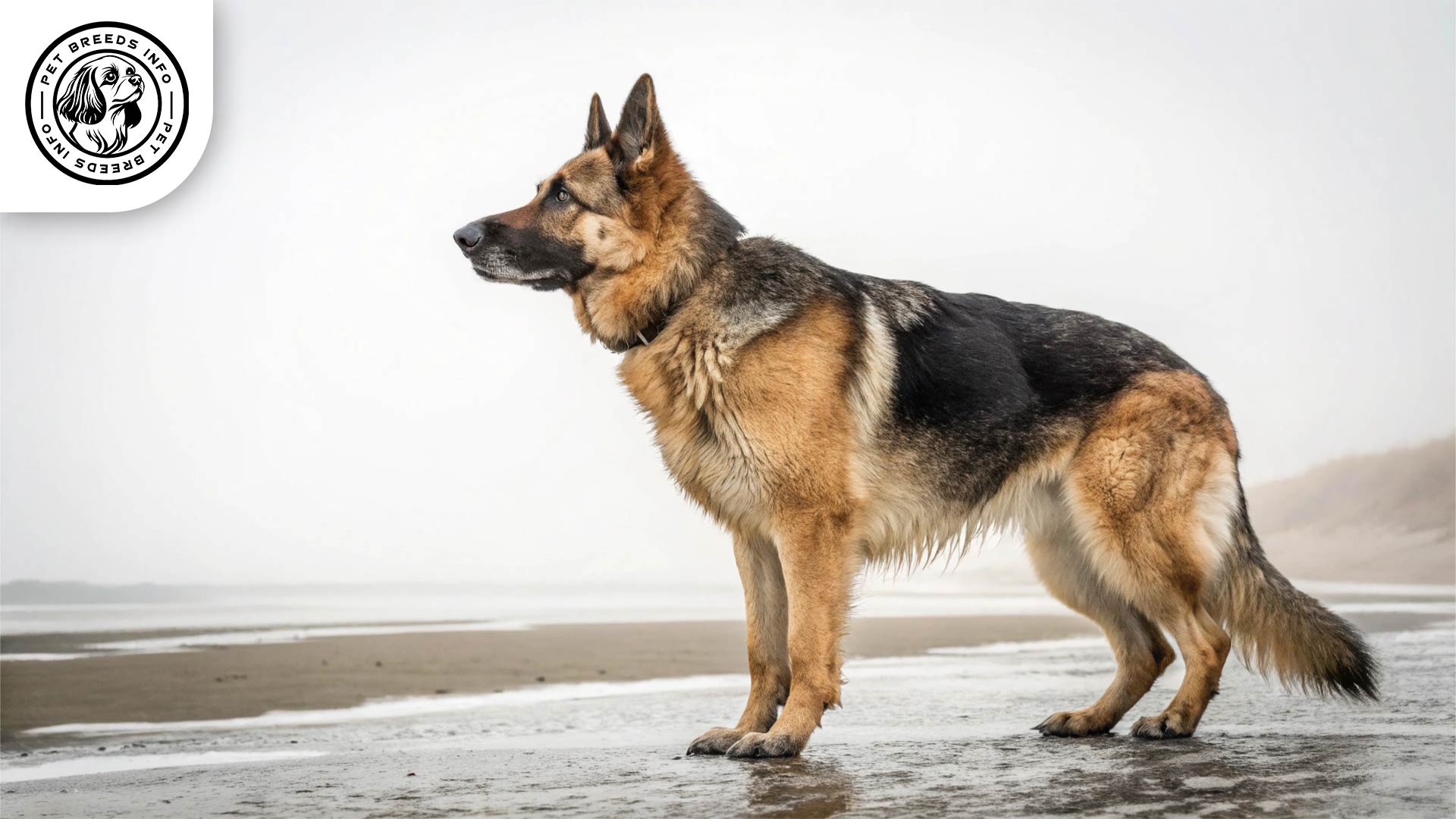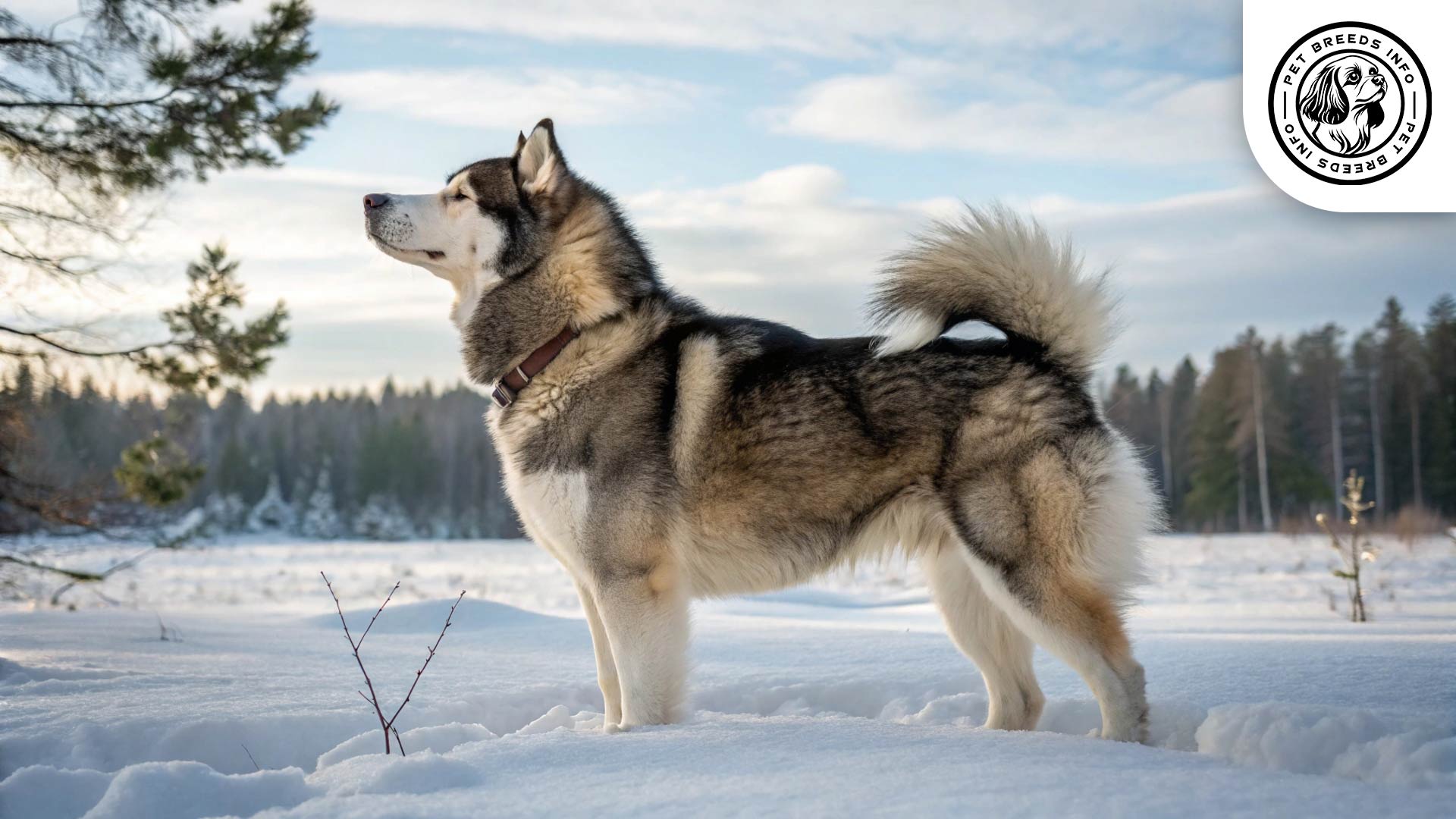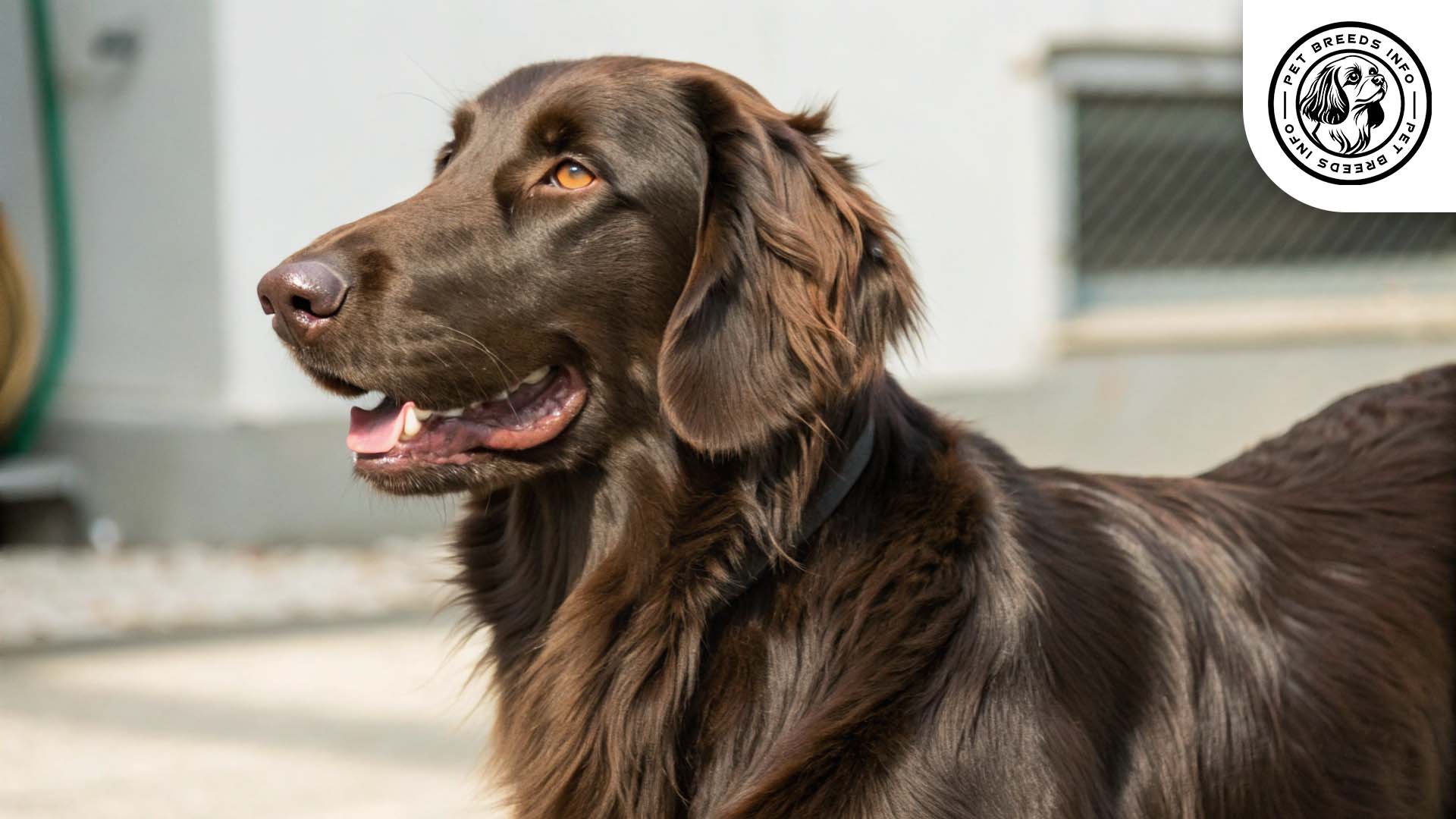German Shepherd Dog Breed: Size, Health, Price & Personality
General Introduction of the Breed
The German Shepherd Dog, also known as Deutscher Schäferhund in German, is a highly intelligent and versatile breed originating from Germany. Developed in the late 19th and early 20th centuries by Captain Max von Stephanitz, the breed was initially bred for herding and guarding livestock. Over time, German Shepherds became widely used in police, military, and search-and-rescue operations due to their intelligence, strength, and loyalty.
Table of Contents
| Weight | 50-90 lbs (22-41 kg) |
| Lifespan | 9-13 years |
| 9-13 years | High-quality dry, wet, or raw diet; protein-rich meals |
| Care | Regular brushing, ear cleaning, nail trimming, and dental care |
| Health | Prone to hip/elbow dysplasia, bloat, and degenerative myelopathy |
| Color | Black and tan, black and red, sable, black, bi-color |
| Nature | Intelligent, loyal, protective, trainable |
| Price | $800 – $3,000 |
Physical Characteristics
German Shepherds are large, strong dogs with a well-proportioned and athletic build. Males typically stand between 24 to 26 inches tall and weigh between 65 to 90 pounds, while females are slightly smaller at 22 to 24 inches in height and 50 to 70 pounds in weight.
The breed has a dense double coat that can be short or long. Common coat colors include black and tan, black and red, sable, black, and bi-color.
Their eyes are medium-sized and almond-shaped, typically dark brown in color. The ears are large, erect, and pointed, contributing to their alert expression. Their tail is bushy and slightly curved when at rest.
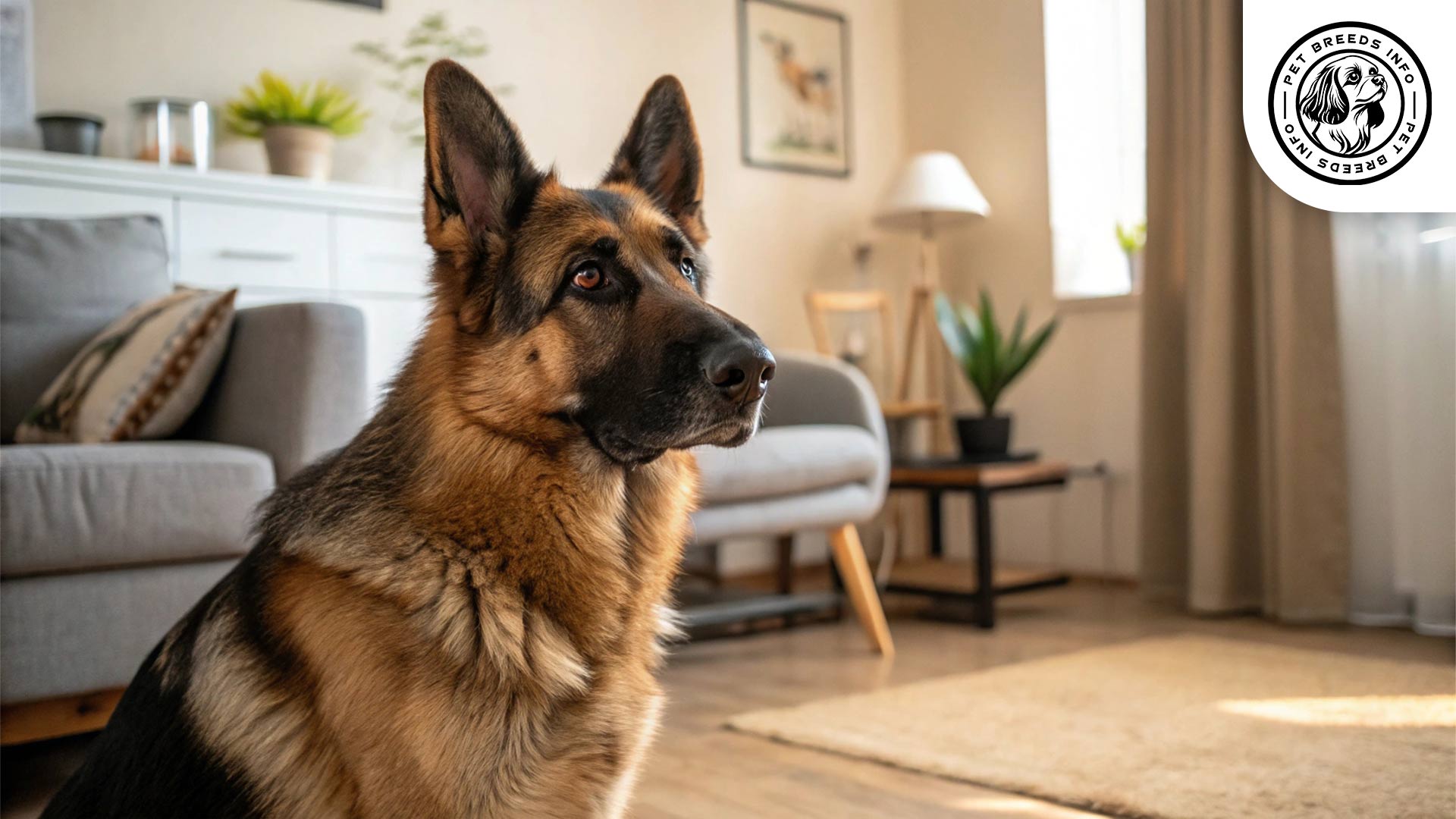
Personality and Temperament
German Shepherds are highly intelligent, quick learners, and eager to please. They have a high energy level and require regular physical activity and mental stimulation.
This breed is extremely loyal and bonds closely with its family. While they are affectionate with their owners, they can be reserved around strangers. Proper socialization can help them develop positive interactions with people and other animals.
They are known for their protective instincts, making them excellent watchdogs. They are also playful and enjoy interactive games, especially those requiring problem-solving skills.
Care and Maintenance Requirements
German Shepherds need daily exercise, including walks, playtime, and training activities. They thrive in homes with ample space but can adapt to apartment living if given sufficient exercise.
Their dense coat sheds year-round, with seasonal heavy shedding. Regular brushing, at least two to three times per week, helps manage shedding.
They are sensitive to extreme heat, so they should not be over-exercised in hot weather. In cold climates, they adapt well due to their thick coat.
Regular hygiene care includes bathing as needed, nail trimming every few weeks, ear cleaning, and consistent dental care to prevent health issues.
Diet and Nutrition
German Shepherds thrive on high-quality dry, wet, or raw diets rich in protein and essential nutrients. Balanced diets with lean meats, vegetables, and grain-free options are recommended.
They may have food sensitivities, so monitoring their diet for allergies is important. Foods like chocolate, onions, grapes, and excessive fatty foods should be avoided.
Read More: English Setter Dog
Portion sizes depend on age, weight, and activity level, usually divided into two meals per day for adults.
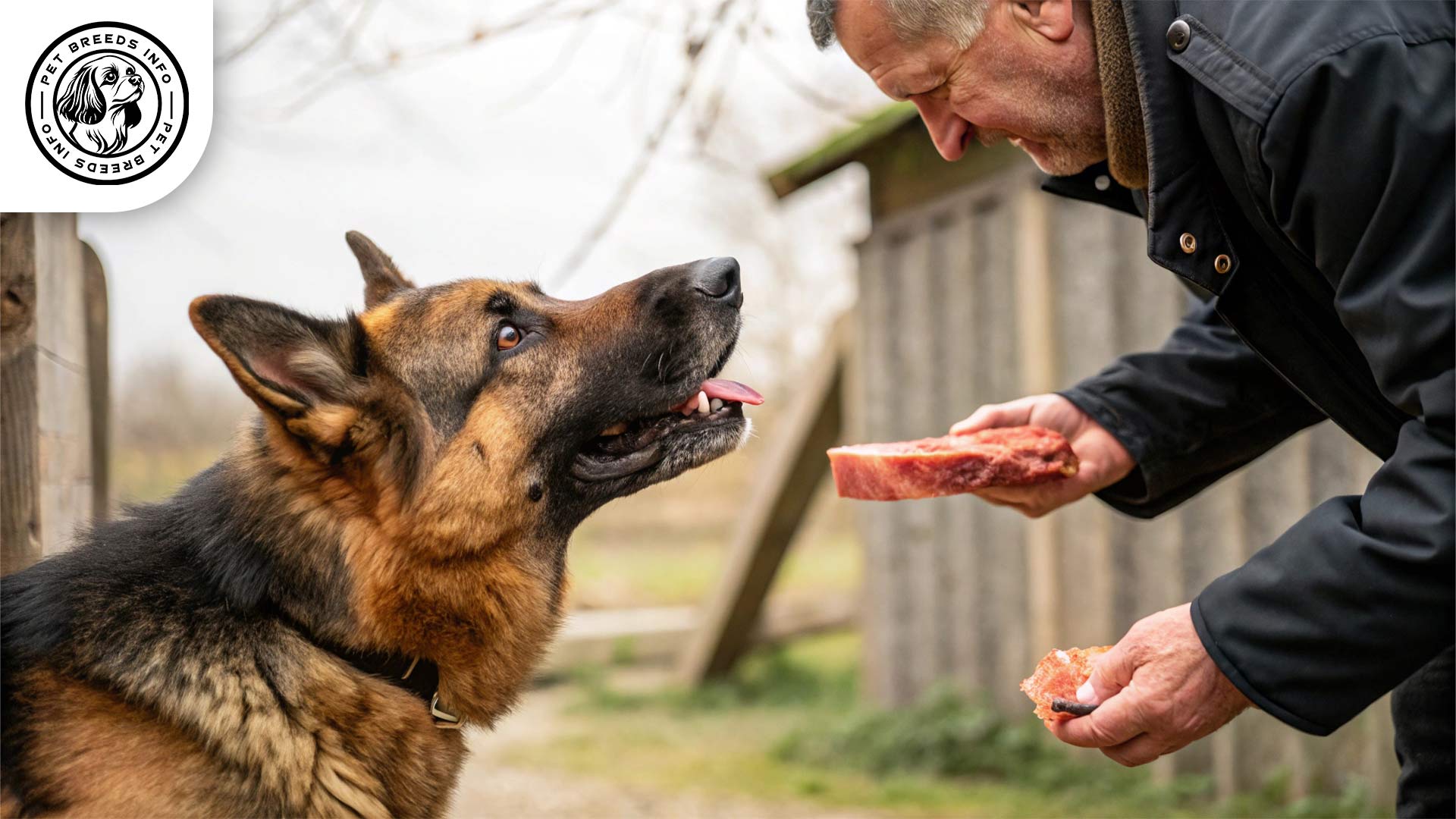
Health and Common Medical Issues
Common health issues in German Shepherds include hip and elbow dysplasia, degenerative myelopathy, and bloat. They may also suffer from allergies and digestive problems.
Routine veterinary check-ups, vaccinations, and preventive care are necessary for a healthy lifespan, which typically ranges from 9 to 13 years.
Training and Behavior Management
German Shepherds are highly trainable due to their intelligence. Consistent and positive reinforcement training methods work best.
Early socialization with people, other animals, and different environments is essential to ensure well-rounded behavior.
Obedience training, agility exercises, and advanced commands can help them stay engaged and mentally stimulated.
Read More: Entlebucher Mountain Dog
Interaction with Other Animals and Humans
German Shepherds are excellent family dogs and are generally good with children, though supervision is recommended with small kids.
They can coexist with other pets if raised together and properly trained. However, their protective instincts may make them wary of unknown animals.
They are highly devoted and thrive when they have a strong bond with their owner.

Price and Availability
The cost of a German Shepherd puppy ranges from $800 to $3,000, depending on lineage and breeder reputation.
Prospective owners should consider reputable breeders, shelters, or adoption centers to ensure responsible pet sourcing.
Conclusion and Final Thoughts
German Shepherds are intelligent, loyal, and highly trainable, making them ideal for dedicated owners who can provide the necessary time and effort for training and socialization.
They are best suited for active families, individuals, or working roles requiring discipline and endurance.
Potential owners should be prepared for their exercise needs, shedding, and health concerns, ensuring they are committed to providing a loving and structured environment.
Read More: German Pinscher Dog
FAQ
Are German Shepherds good for first-time owners?
They require experienced or committed owners who can provide proper training and exercise.
Do German Shepherds shed a lot?
Yes, they shed year-round with heavy seasonal shedding, requiring frequent brushing.
Are German Shepherds easy to train?
Yes, they are highly intelligent and respond well to consistent, positive reinforcement training.
How much exercise do German Shepherds need?
At least 1-2 hours of physical activity and mental stimulation daily.
